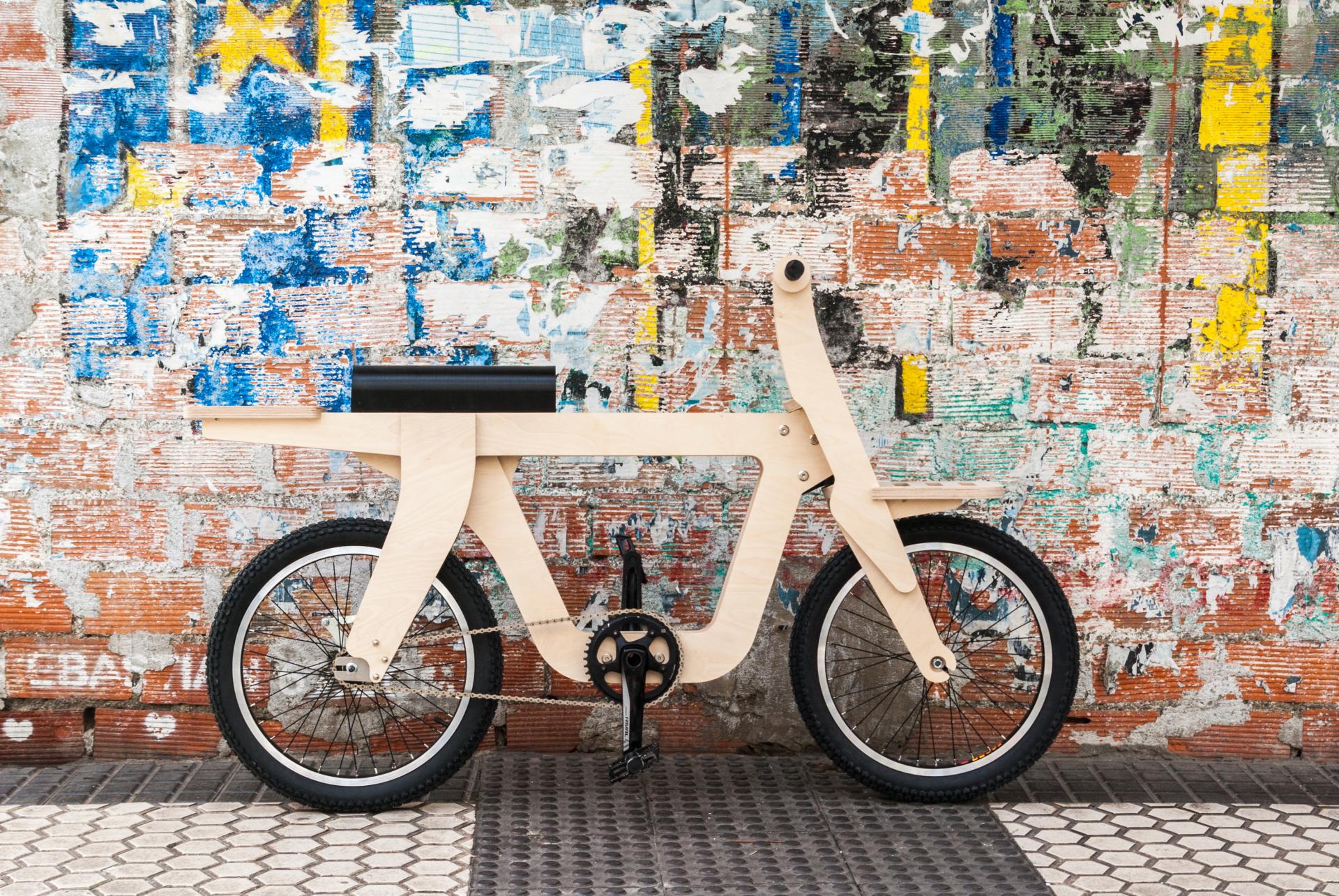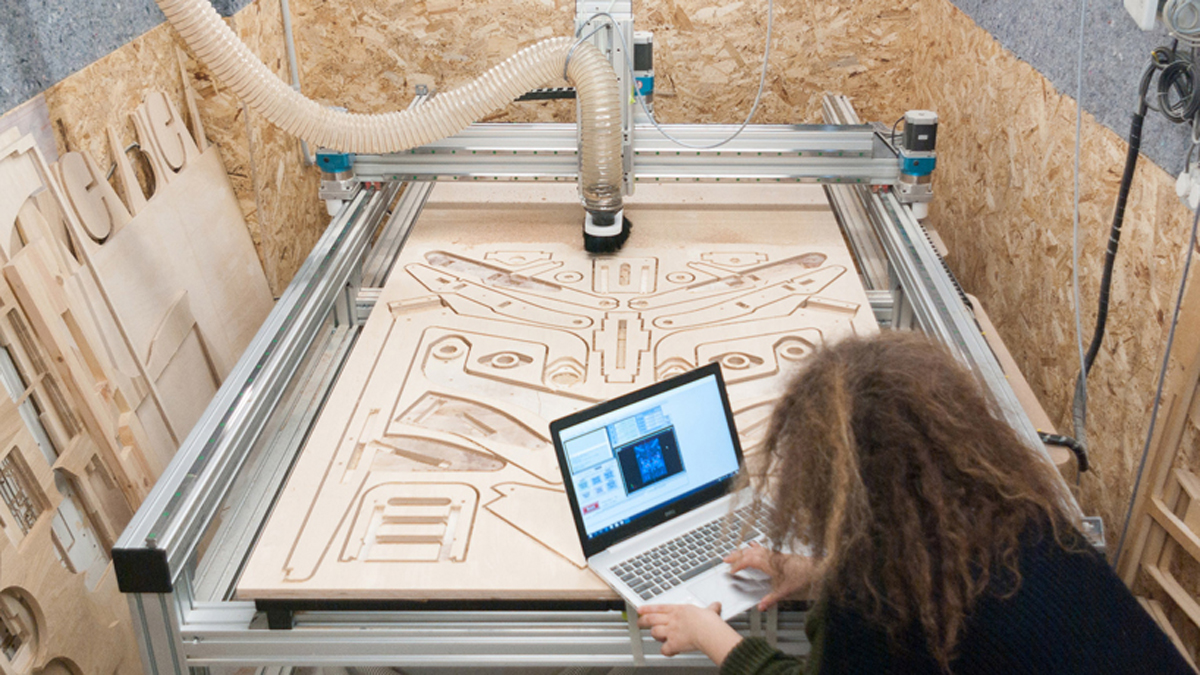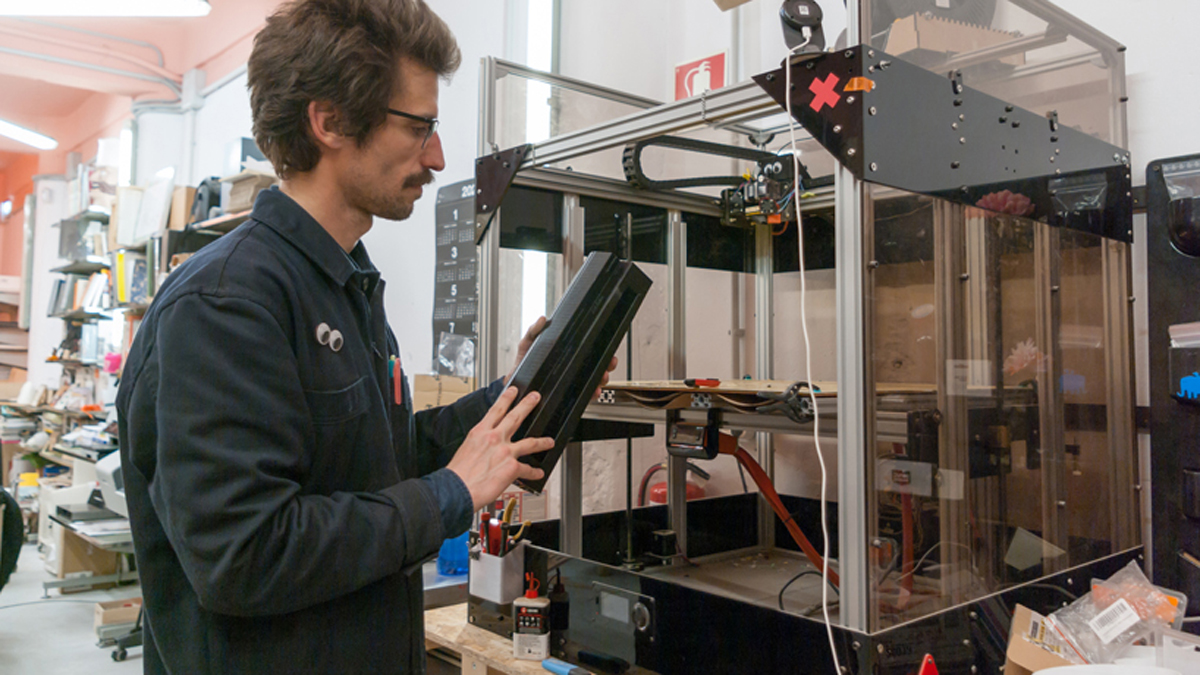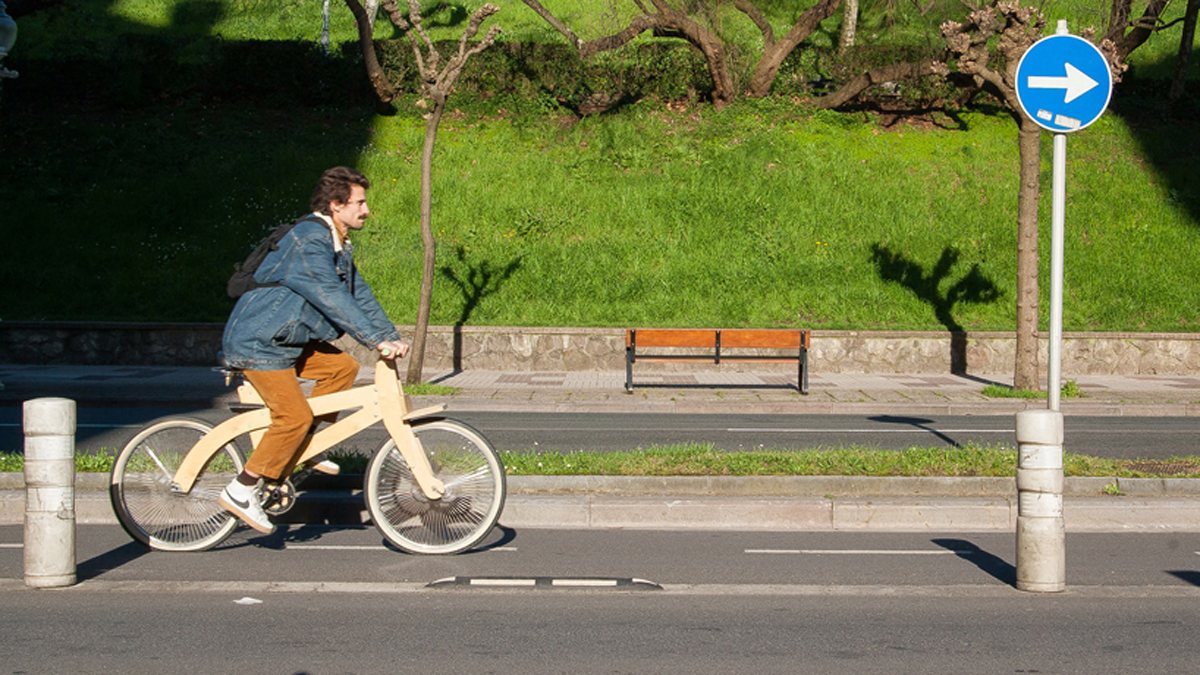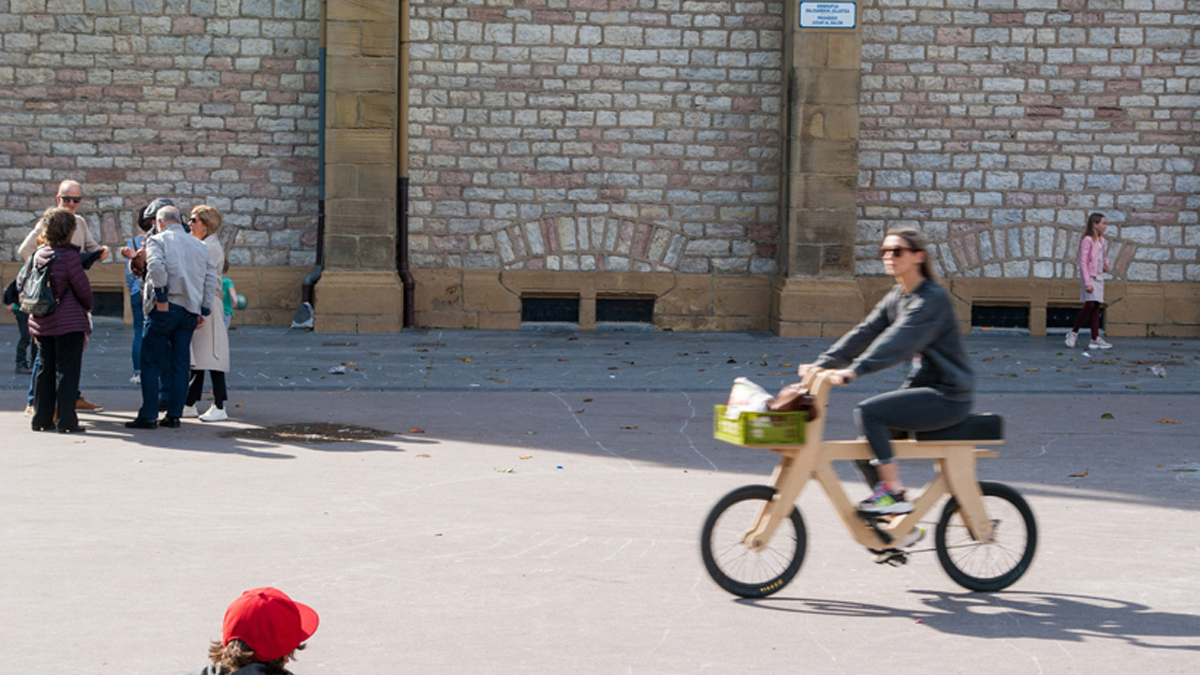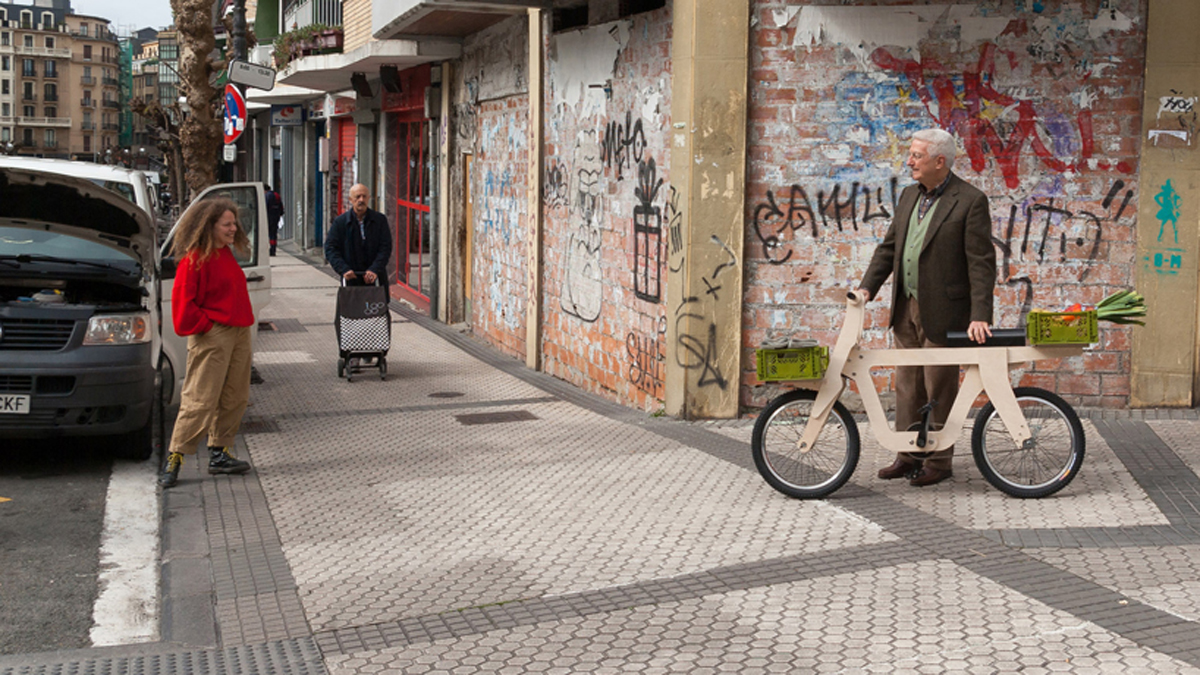openbike, a manifesto
Basic information
Project Title
Full project title
Category
Project Description
Openbike is a manifesto on sustainable urbanism, urban transport, distributed manufacturing, shared knowledge, the community and the responsible use of resources, that materializes in the design of a non-polluting urban transport, the bicycle, that can be manufactured by its own user within the city where it is going to be used, downloading the fabrication files and using fabrication methods available at a local fablab, such as 3d printing and CNC milling.
We transport data instead of materials
Geographical Scope
Project Region
Urban or rural issues
Physical or other transformations
EU Programme or fund
Which funds
Description of the project
Summary
Openbike is a manifesto on sustainable urbanism, urban transport, distributed manufacturing, shared knowledge, the community and the responsible use of resources that materializes in the design of a non-polluting urban transport, the bicycle, which can be manufactured by its own user within the city where it is going to be used.
In increasingly denser and more populated cities, the use of non-polluting transport is essential for coexistence.
The access that we have today to technology gives us the opportunity to use manufacturing processes that were unattainable outside the industry.
The designs resulting from this initiative must be able to be manufactured by the user using the resources of a local digital fabrication workshop (fablab) such as 3D printing and CNC cutting, and pieces reused from useless bikes or from local bike shops.
The main design features are based on the universality of the user, the ability to transport goods, the simplicity of construction and the availability of materials.
Based on the principles of open design, a development and design based on the use of local resources but with global techniques and tools adapted to their particular characteristics (cultural, social, material).
The fabrication files are licensed under CreativeCommons 4.0, allowing the designs to be improved, modified, manufactured, and shared again.
We can access this shared digital information from anywhere in the world through the website, to materialize it locally and sustainably, using digital manufacturing methods that generate a controlled minimum amount of waste.
We transport data, not materials.
The aim is to empower citizens as a transforming agent, putting technology at their service and prioritizing local production with local resources, which generates active and productive cities, looking to the future from an ecological perspective, trying to reduce carbon emissions to a minimum.
Key objectives for sustainability
One of the objectives of Openbike is to offer a reflection on our role in generating a more sustainable society.
The project proposes a sustainable form of manufacturing in which we transport data instead of materials, which generates local consumption since manufacturing occurs in the user's city, distributed manufacturing.
In addition, the designs that we propose are designed to be manufactured with digital manufacturing tools such as 3d printing and CNC milling that allow us to reduce waste as much as possible by manufacturing only what we need with the least amount of material possible.
The project encourages the materials and/or components of the Openbike that are manufactured using these tools to be reused from disused bicycles or purchased from local businesses.
On the other hand, the project emphasizes an element such as the bicycle, which represents the most universal non-polluting means of transport, contributing to a more sustainable and living beings friendly life in the city.
Key objectives for aesthetics and quality
Openbike emphasizes the use of design as a transforming axis of society. It demonstrates the capacity of design to improve people's lives and coexistence in cities.
In our project, proposals are made with an aesthetic intention and a powerful product image in order to connect with as many people as possible.The fact that this is so has made the project present in media dedicated to design such as the digital magazine Designboom, which has given the project visibility that it would not have obtained otherwise.
Also the website dedicated to the project from where users make contact with its premises and download the manufacturing files, manuals, ... has a clear vocation for visual experience, it is not only a download platform but also offers the user all the information in a visually attractive way.
We have moved the website away from the aesthetic of a forum or download page precisely because we believe that the added value of the design is one of the points that enhance the project.
Our openbikes are functional and beautiful objects.
Key objectives for inclusion
As we have already said, Openbike is a manifesto about issues such as urban sustainability, community, distributed manufacturing,... which takes the bicycle as its symbol.
We chose the bicycle precisely because of its universal and inclusive character. All kinds of people throughout the planet use bicycles as a means of transportation, regardless of their origin, age, gender, culture, economic capacity,...
.
In addition, we make the designs of these bicycles freely available on the web so that anyone can use them, encouraging these people who come to our project to come into contact with facilities in their city that they did not even know about until then.
At this time, we connect them with other forms of manufacturing and give them the opportunity to implement improvements or modifications to those designs by re-sharing afterwards.
The design effort that we have made in the different versions of the openbike has been guided precisely by reaching a design that is as universal as possible that adapts to the different sizes of users.
The files and manuals make the manufacture and assembly of the openbike affordable, also counting on our support via email since we are open to discussing with users their doubts, contributions, variables, etc.
Results in relation to category
Openbike has been part of the Spanish Pavilion at the 2021 Venice Architecture Biennale and part of the Cities expo curated by Dominique Perrault at the 2021 Seoul Biennale of Architecture and Urbanism.
These acknowledgments of the project as a commitment to sustainable urban planning and as a proposal for a better life in cities have allowed us to be present in important forums where these challenges are addressed.
Thanks to the visibility that the presence in these international events and in different media, the project has come to interest groups, associations, schools and universities from all over the world that we hope will join the project and develop their openbikes giving another dimension to the project and doing that the reflection on how we can all contribute to a more sustainable form of consumption, transport and life reaches more and more people.
How Citizens benefit
The Openbike project is a project based on the idea of community, citizens making decisions that affect life in cities, citizens who believe that they can improve their environment and contribute something positive to their city.
The first test we carried out on the project was open and collaborative. The idea that this project had to be developed in community was important from the beginning. We created a working group together with interested citizens through a call from the citizen laboratory of our city, Donostia, Gipuzkoa, Spain, in which, starting from an initial design that we proposed, we arrived at a very early Openbike model.
The project currently consists of a website dedicated to the Openbike that we launched in September 2021 in which anyone interested can download the manufacturing files and assembly manuals as long as, if they make modifications or new proposals, they are shared in the same way.
So far there have been more than 1,000 downloads. We have received communications from different users, from individuals from different European countries, to a Dutch university school that is using the project in one of its classes, an NGO in Cairo that has adapted the design to the resources they have in their city and it is going to make open bikes so that some of the children they work with can get around, cycling associations, ....
The future of the project is to start receiving feedback from all these people who have become part of the Openbike project from the moment they downloaded the files and share it again so that the community grows and we can all learn. and benefit from the work and experience of all.
Physical or other transformations
Innovative character
The most innovative thing about the Openbike project is how it focuses on the user, how it makes us aware that the situation we are currently experiencing in our cities is not someone else's business, we can all make decisions that contribute to a more sustainable life, a friendlier environment, more respect and equality. We believe that Openbike can help people think, what can I do?
As we say to future openbike users, this is not about bicycles or at least, not only about bicycles.
We use the design of bicycles as a symbol to bring people a reflection about all the issues that the project deals with, sustainable urbanism, urban transport, shared knowledge, distributed manufacturing and community, but we also focus on design as a transforming agent when making the access to that design totally free, we innovatively face the fact of generating accessible, sustainable and beautiful means of transport and making people think about it.
Learning transferred to other parties
Part of the Openbike project is based precisely on its ability to be shared and communicated.
Any person, community, organization, educational center, etc. that approaches the project has at their disposal all the manufacturing files, manuals, lists of materials and components,..., necessary not only for the manufacture of their own Openbike but also for so that they make the project their own and continue developing the available designs or even designing new bicycle models, accessories,... also providing them with a system or methodology that can be applied to new areas beyond urban transport, generating projects related to Openbike that continue emphasizing people as actors of change, cities as production centers, communities as an essential part of sustainable progress and, above all, projects that help us reflect and question our role in change.
Since we completed the project generating the https://openbike.cc website, especially from the second half of 2021, there have been more than 2,000 downloads and a lot of messages from people with very different profiles (individuals, educational, NGO, ...) and from very different origins (Japan, Canada, Egypt, Spain, Holland, France, Germany, Portugal,.....) wanting to be part of the project and adapt it to their particular conditions.

